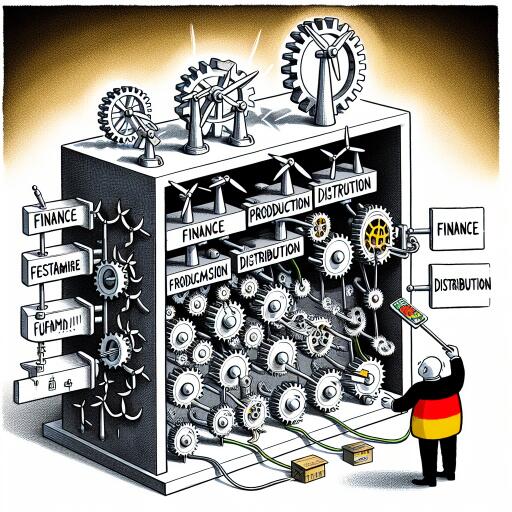
Germany Adjusts How the Costs of Adding More Renewable Energy Are Shared
In a recent announcement, Germany has revealed plans to amend the financial structure of supporting renewable energy integration, aiming for a more equitable distribution of costs among consumers across the nation. This strategy comes at a time when Germany is ambitiously pursuing climate neutrality by 2045, with the goal of sourcing 80% of its electricity from renewable resources by 2030. The pursuit of such a green future is not without its price tag, estimated at 450 billion euros ($498.4 billion) necessary for grid expansion over the next few decades.
As Germany progresses with these plans, the impact on consumer energy bills has sparked a fervent debate. Particularly, a disparity has been observed between the northern and southern states; the former has voiced concerns over bearing a higher cost burden. This discrepancy is largely attributed to the northern region’s investment in wind turbine connectivity. The sparse population in these areas, despite the lower cost of wind power generation, means the financial load of grid connections is shared among fewer residents, subsequently inflating the economy’s energy bills.
This regional cost imbalance is additionally complicating the development of renewable energies in eastern Germany. Here, energy prices are already 22% more expensive than in their western counterparts when considering the purchasing power disparity. To tackle these challenges, new regulations are being introduced to recognize network operators who incur significant expenses from renewable energy integration. These operators are poised to receive financial compensation, with the aim of distributing costs more uniformly among electricity consumers countrywide. Klaus Mueller, the president of the Federal Network Agency, underscores the collective nature of this endeavor, stating that “Investments in the grids benefit everyone because the energy transition is a joint task.”
The details of this new model are still under refinement by the agency and will be unveiled gradually. The initial step involves identifying which network operators are disproportionately affected by costs associated with the growth of renewable power. By mid-October, projections for the additional expenditures and specific relief measures for affected operators are expected to be made public. The proposed method plans to employ a critical metric that correlates the capacity of renewable energy generation to the consumption load within a network’s territory.
Moreover, there is contemplation over the creation of a sovereign government fund aimed at smoothing out the cost of expanding Germany’s electrical grid across different generations. This prospective fund represents a further step towards ensuring that the economic demand of transitioning to renewable energy does not unduly burden present or future consumers but rather is shared in a manner that sustains the country’s environmental goals without compromising economic stability.
Through these adjustments, Germany is addressing the complex financial and logistical puzzle of its renewable energy expansion. By striving for a fair distribution of costs and seeking innovative solutions to fund its ambitious green transition, the country is setting a noteworthy precedent in the global movement towards sustainable energy adoption.





Leave a Reply